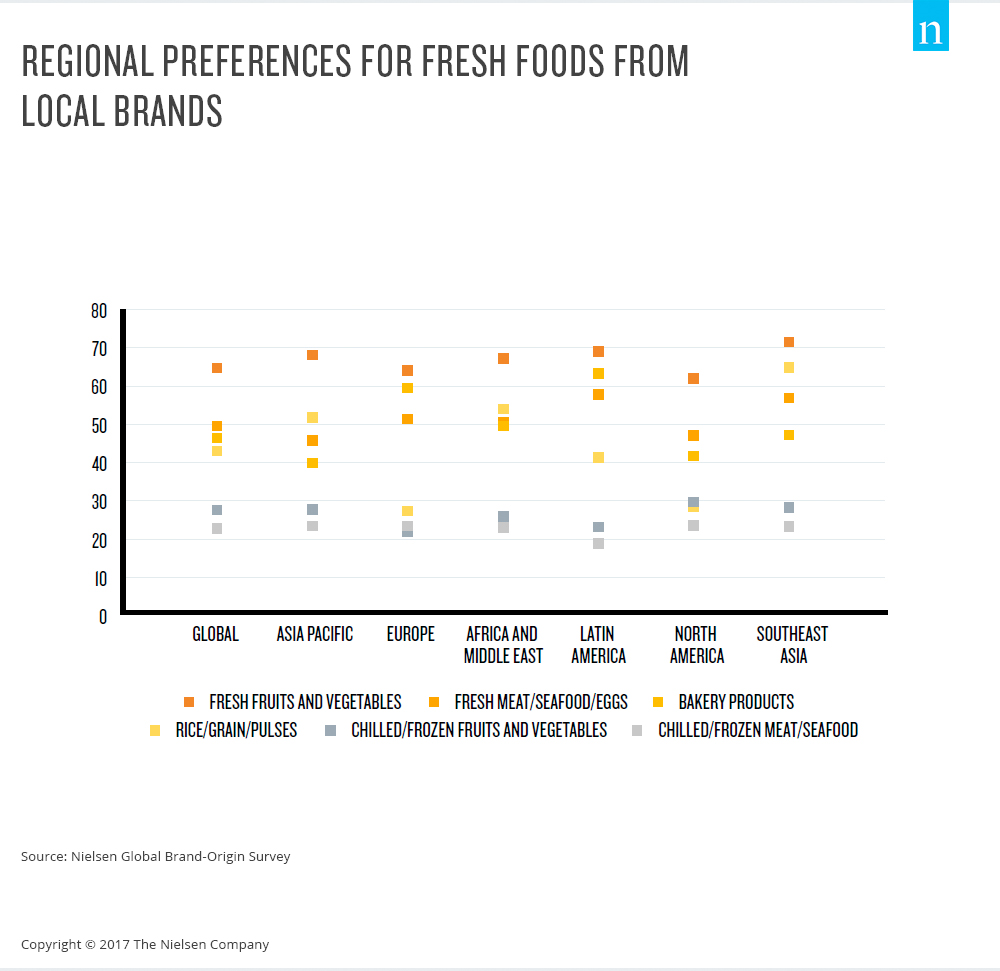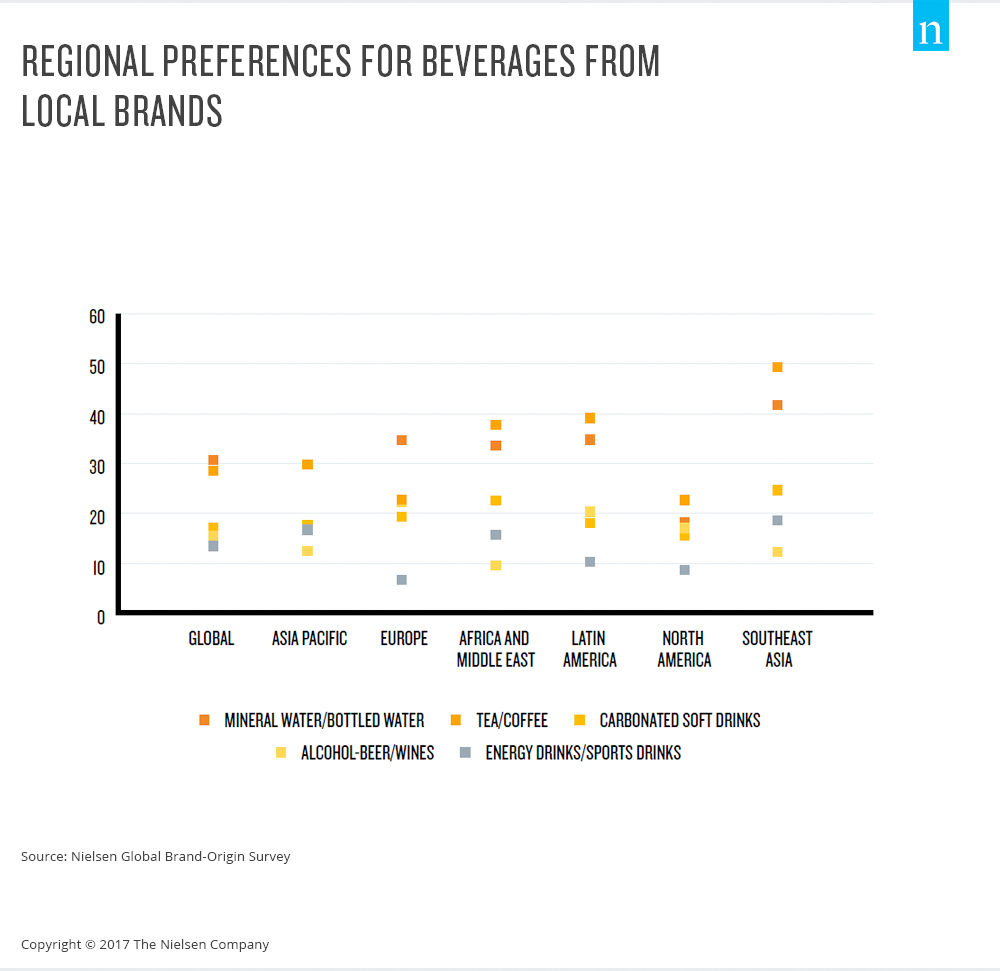When it Comes to Beverages, Global Brands are Quenching Consumer Thirsts
November 30, 2017
![]() As far as choice goes, there’s never been a better time to be a consumer. Thanks to globalization and connectivity, consumers around the world have access to a wider array of products than ever—a trend that’s likely to continue going forward. And the bevy of choice involves products and services from both multinational and local brands. So in an era of massive choice, how much weight does the “made in” moniker carry when it comes to purchase motivation?
As far as choice goes, there’s never been a better time to be a consumer. Thanks to globalization and connectivity, consumers around the world have access to a wider array of products than ever—a trend that’s likely to continue going forward. And the bevy of choice involves products and services from both multinational and local brands. So in an era of massive choice, how much weight does the “made in” moniker carry when it comes to purchase motivation?
Historically, global consumer sentiment has been relatively balanced between global and local brands. According to a recent Nielsen global survey, however, the tide seems to be shifting. In fact, only two categories stand out as local brand strongholds: dairy and fresh foods. That preference is somewhat logical, given consumers’ desire to buy perishables as close to the source as possible, due to concerns over freshness and quality.

At the other end of the spectrum, consumers around the world remain dedicated to global manufacturers when it comes to many of the categories where multinationals have traditionally had a stronghold, including baby products, personal care items and carbonated beverages. And these categories may soon have some company, as consumer preference among a number of other categories is shifting to global brands. These categories most notably include coffee and tea, along with mineral/bottled water.
Looking at global preferences in the water category (mineral/bottled), just 30% of global respondents prefer local brands over multinational ones. The same is true for coffee and tea, with just 29% of respondents expressing a preference for local brands. The preference for global brands is even more pronounced when it comes to carbonated beverages (18% prefer local), alcohol (16% prefer local) and energy/sports drinks (14% prefer local).
When we look at regional preferences we see that opinions are more divided than they are at the global level. Notably, sentiment for local water brands is much higher at a regional level than it is at the global level. Specifically, 42% of respondents in Southeast Asia display stronger local brand preference when it comes to mineral/bottled water. Preference for local water brands across Europe, the Middle East and Latin America comes in at just over one-third (35%, 34%, 35%, respectively).

While a global or regional overview is helpful for general perspective, there’s no discounting the benefit of country-specific data, especially in markets where certain products or categories are part of the local culture. The Middle East, for example, displays a strong local brand preference when it comes to beverages, specifically teas.
“The type of tea consumed in Egypt, Pakistan and Saudi Arabia, where preference is heavily skewed toward local brands, is notably different to global tea products. For example, it is more common to consume loose tea rather than bags/sachets, and local tea products are generally stronger in flavor than western teas. Similarly, in Egypt and Saudi Arabia, there is more preference for local Arabic coffee than western coffee,” said Gaurang Kotak, Associate Director, Nielsen Retail Measurement Services. “Likewise, a number of local water manufacturers dominate the market in the United Arab Emirates.”






























